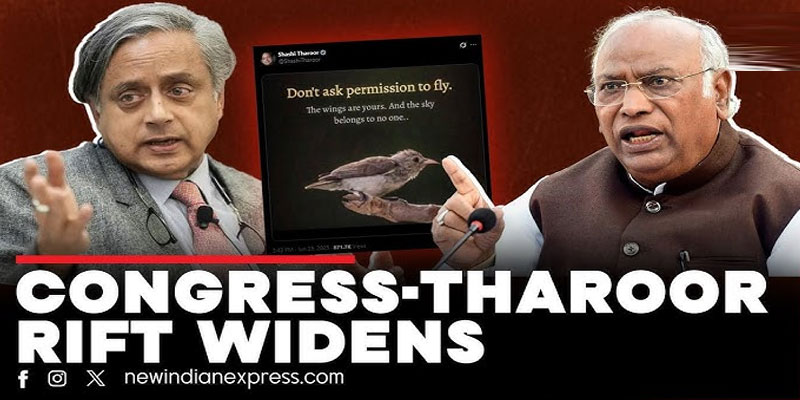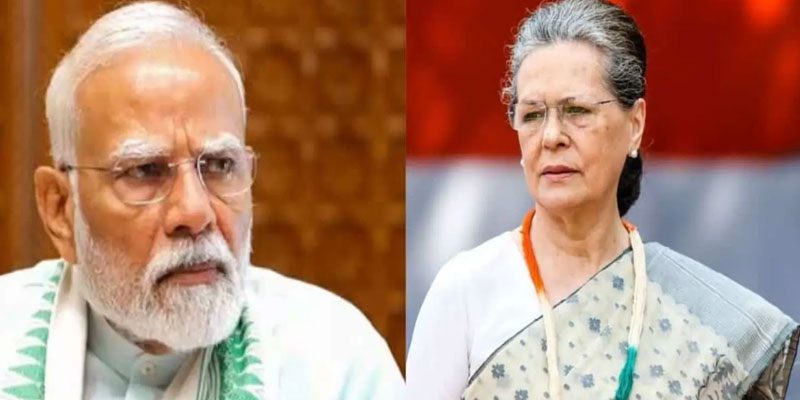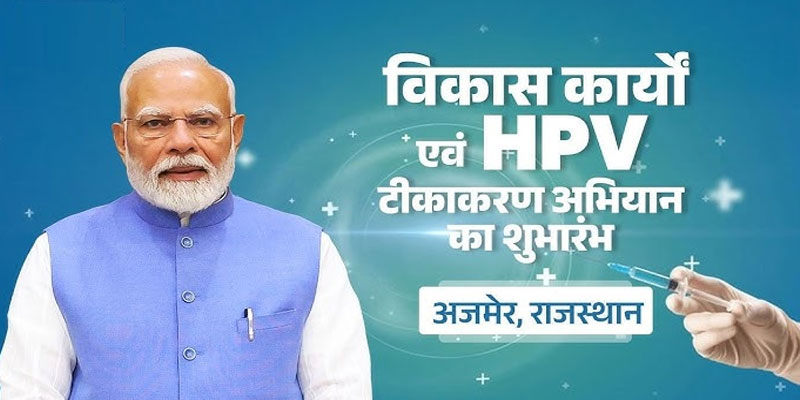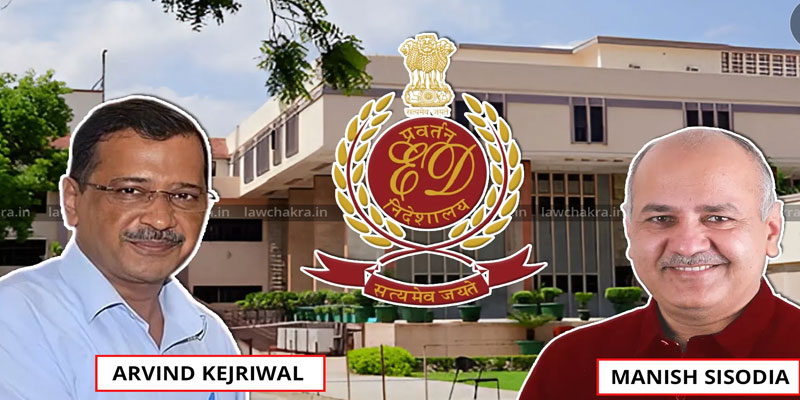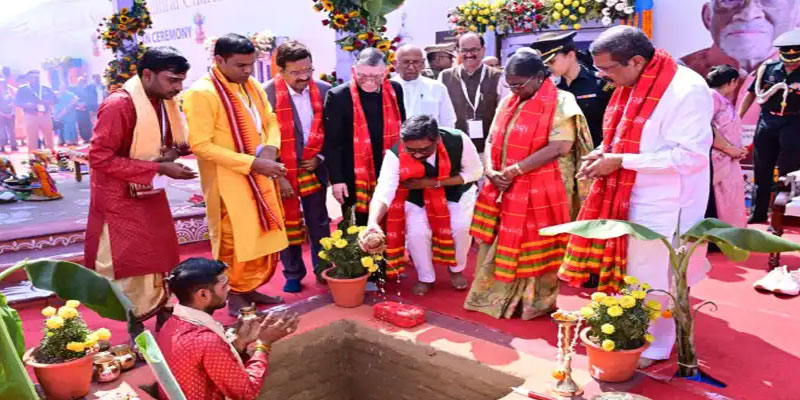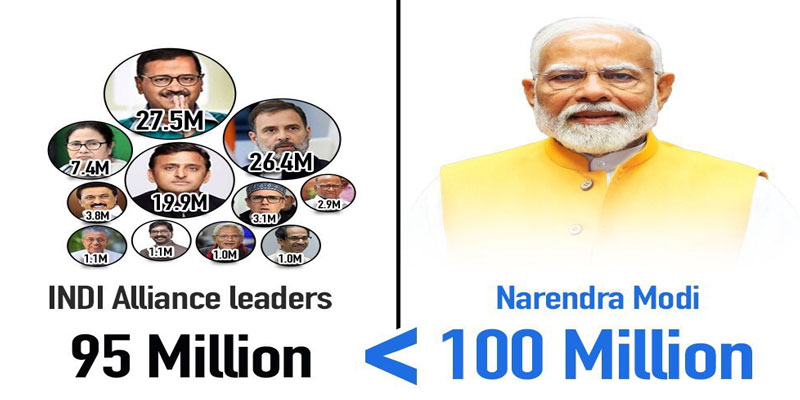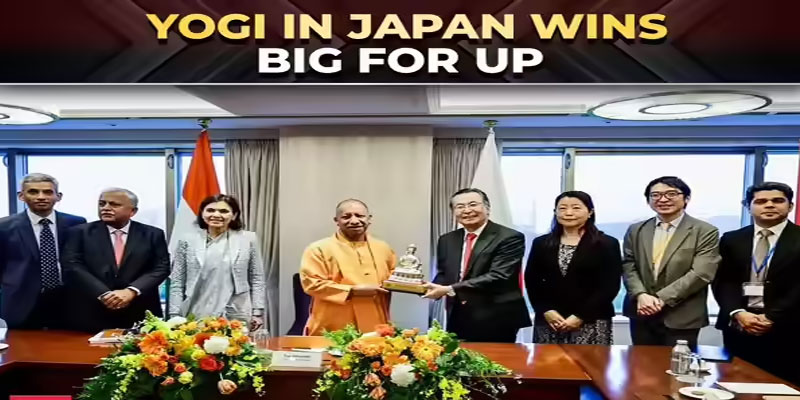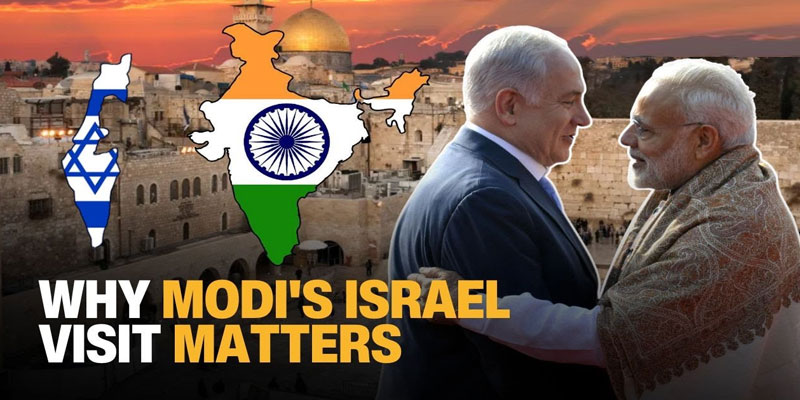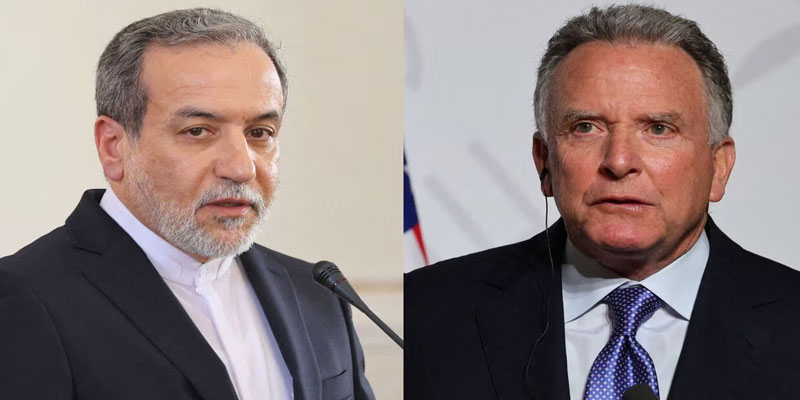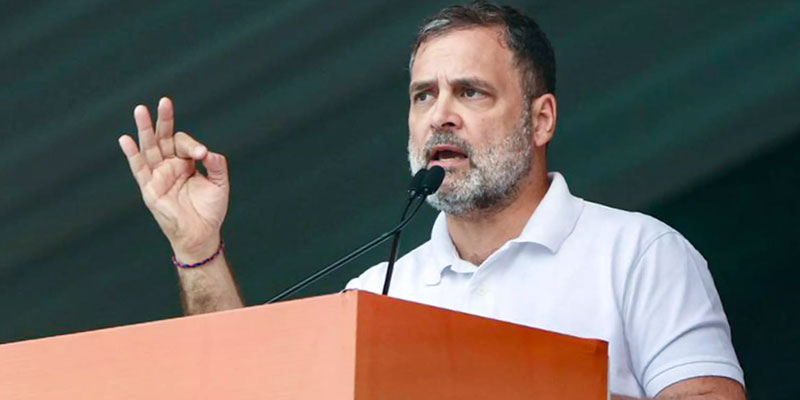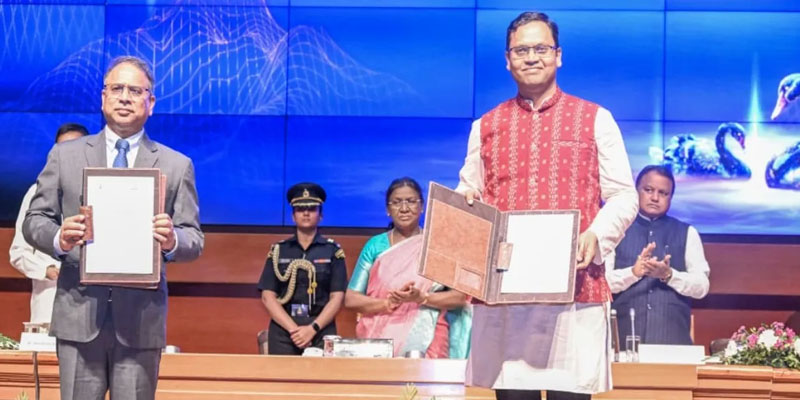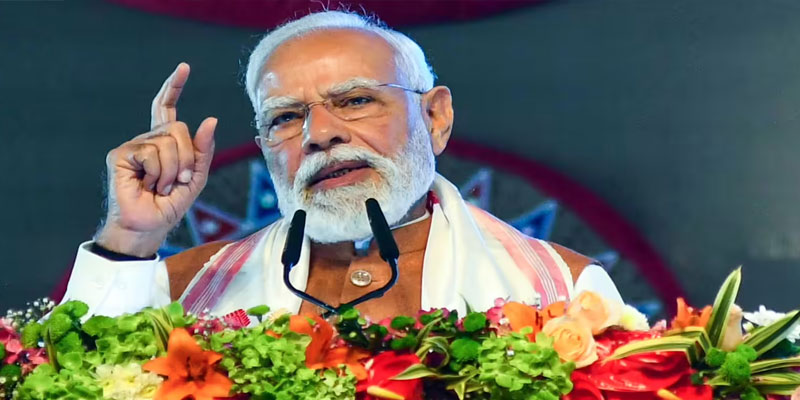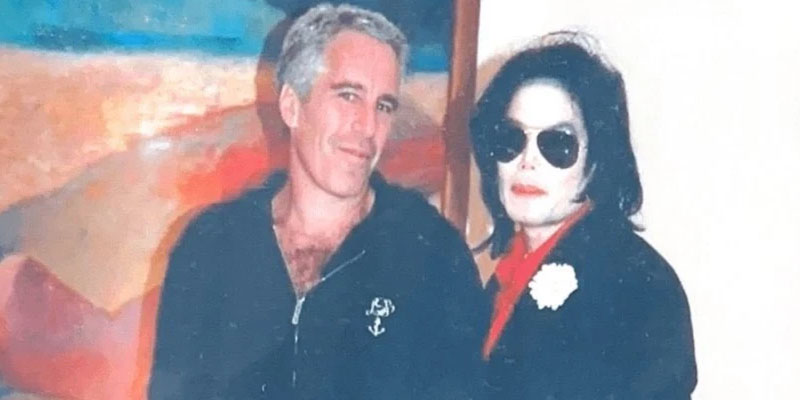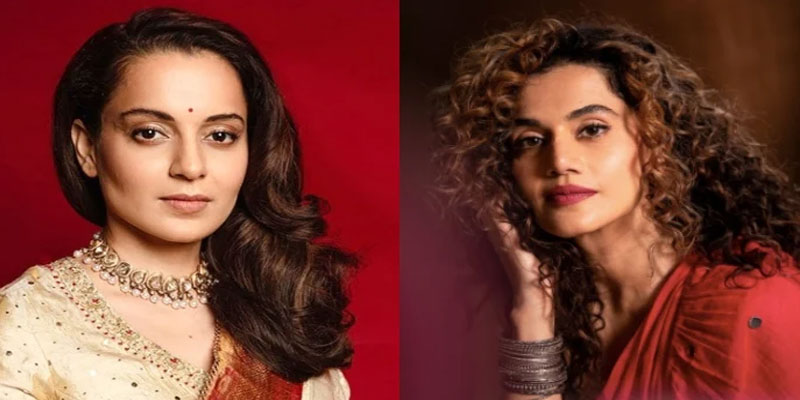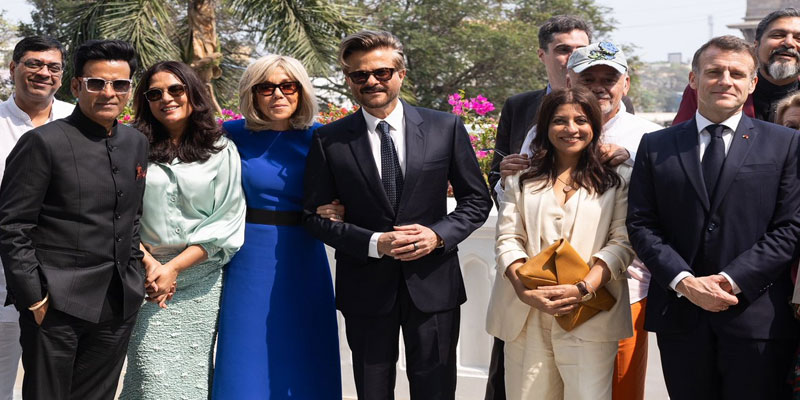Wings of Dissent: A War of Words Escalates
The friction between Shashi Tharoor and the Congress high command has become increasingly public and symbolic — now playing out not just in speeches, but also in social media metaphors. What began as a difference in tone over foreign policy has evolved into a digital joust featuring poetic posts, avian metaphors, and sharp political rebukes.
After Congress President Mallikarjun Kharge took a public dig at Tharoor for his recent praise of Prime Minister Narendra Modi, Tharoor responded with a cryptic image of a bird and the quote: “Don’t ask permission to fly. The wings are yours. And the sky belongs to no one.”
Though subtly worded, the post was widely interpreted as a defiant message to his critics within the Congress, asserting his independence and right to express dissent.
Soon after, Congress MP Manickam Tagore, known to be close to the party leadership, shot back with a metaphor-laden response: “Freedom isn’t free, especially when the predators wear patriotism as feathers.”
His post featured six birds of prey — including hawks, vultures, and eagles — clearly aimed at warning against the lure of political predators, and implicitly accusing Tharoor of being dangerously close to the BJP.
The Modi Controversy: Praise or Provocation?
The immediate provocation was Tharoor’s article in which he praised Prime Minister Modi’s global diplomacy, calling him a “prime asset” in India’s international outreach, particularly in the context of Operation Sindoor, India’s military retaliation to the Pahalgam terror attack that killed 26.
While Tharoor carefully framed his remarks as support for India’s global standing, not for Modi’s politics, the article sparked outrage within Congress ranks. Kharge publicly declared: “We said the country comes first, party later. Some people say Modi first, country later.”
The jibe was unmistakably aimed at Tharoor, who had earlier contested Kharge in the Congress presidential race — a contest that, while democratic on the surface, exposed deeper ideological rifts within the party.
Party or Platform? Tharoor Walks a Tightrope
Shashi Tharoor, a former UN diplomat, bestselling author, and one of Congress’s most articulate parliamentarians, has long walked the line between intellectual independence and party loyalty. His comments on foreign policy — often more aligned with the government’s view than his party’s — have frequently made headlines, and drawn flak.
While Tharoor insists he is not joining the BJP, speculation has only grown with each public divergence. His selection by the Modi government to lead a diplomatic delegation abroad following the Pahalgam attack further fueled whispers that he was being groomed for a larger role — one perhaps outside the Congress fold.
Congress insiders note that Tharoor was not nominated for the delegation by the party, yet the government chose him, raising eyebrows among the Congress leadership. Tharoor’s acceptance of the role was perceived by some within the party as an endorsement of the ruling regime’s foreign policy narrative.
The Eagle and the Vulture: Party Unity in Question
The "birds of prey" exchange between Tharoor and Tagore is more than just a witty war of words — it symbolizes an existential crisis in the Congress Party. On one hand are leaders like Tharoor, who believe the party must evolve, recognize India's changing political landscape, and speak in a voice that resonates nationally and internationally. On the other are leaders deeply invested in maintaining party discipline and drawing strict lines between the Congress identity and the Modi-led BJP.
Kharge’s public sarcasm — “His English is very good, that’s why we made him a CWC member” — wasn’t just a dig at Tharoor’s eloquence. It underscored the leadership's growing discomfort with internal voices that deviate from the party’s central messaging, especially when those voices come with media clout and international appeal.
Tharoor, for his part, has not escalated the conflict but continues to walk the line between affirmation and ambiguity, making it harder for both critics and supporters to categorize his intentions.
A Party’s Strength Lies in Managing Its Mavericks
The Tharoor vs Congress saga is not just about one man and his metaphors — it is a case study in how traditional parties handle dissent in a time of political realignment. Tharoor’s praise for Modi on foreign policy, while not an endorsement of the BJP, challenges the idea that opposition must always be oppositional.
Congress, a party with a legacy of diversity and debate, must decide whether to embrace independent voices or discipline them into silence. In either case, the stakes are high. Leaders like Tharoor bring intellectual heft and international credibility, but they also bring unpredictability.
At a time when Indian politics is increasingly polarized, a well-judged approach might lie not in clipping the wings of free thinkers, but in harnessing their flight for the party’s broader vision — provided both sides can agree on where the sky actually begins.
(With agency inputs)


